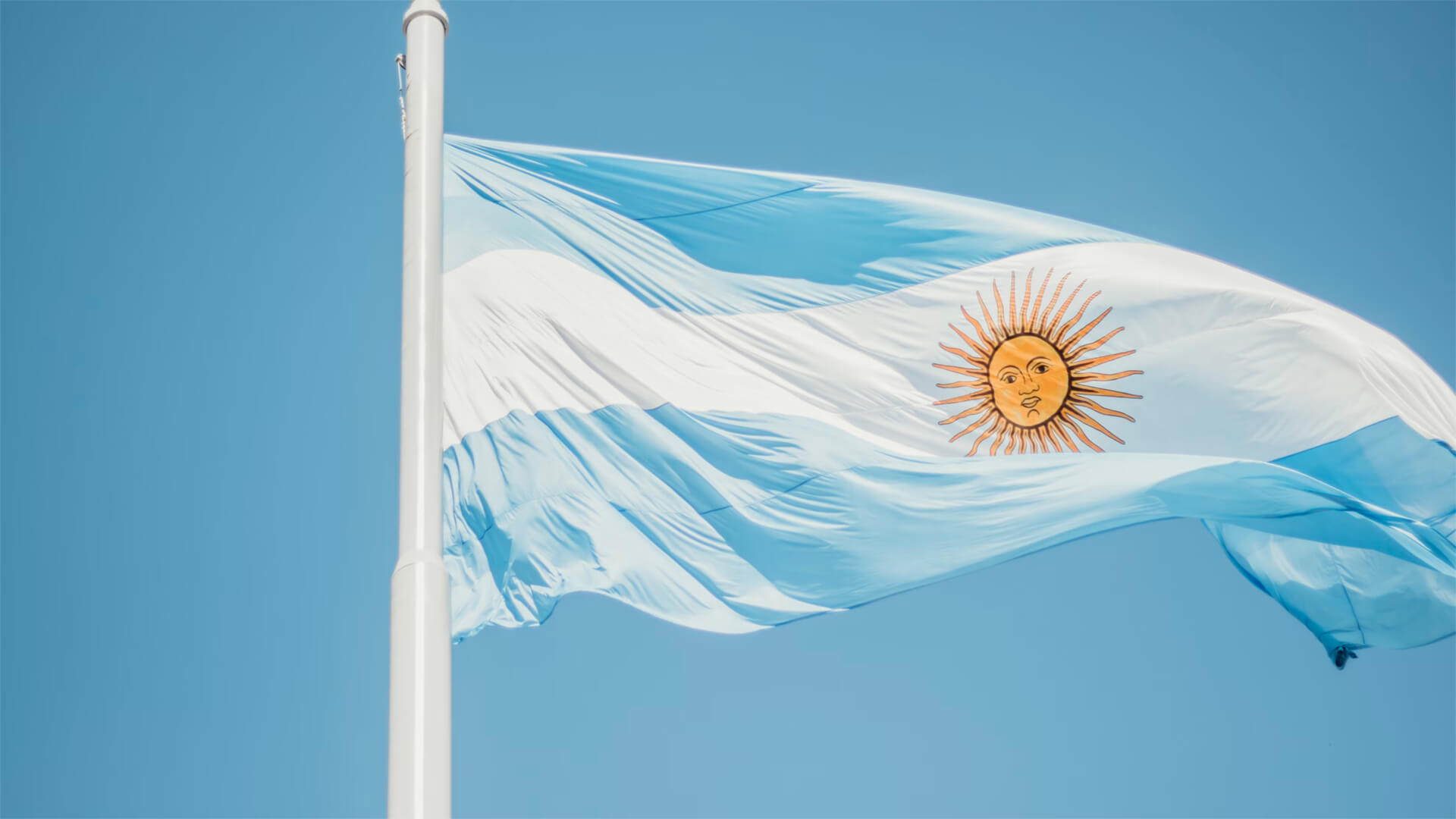FOR MORE ON THE FUTURE OF Argentina, SEE DISUNITED NATIONS

The Accidental Superpower: Ten Years On
With a new “10 years later” epilogue for every chapter, comes an eye-opening assessment of American power and deglobalization in the bestselling tradition of The World is Flat and The Next 100 Years.
Next up in our ‘Post-America’ series is Argentina. I’m pretty optimistic about Argentina’s future…they just need to get out of their own way.
Between its abundant arable land, large shale industry and lack of any real strategic threats, Argentina is poised to be a significant regional power. Given Brazil’s dependency on international markets and trade, Argentina may look even better if the rest of the neighborhood has a shake-up.
Sure, Argentina has some hurdles to jump over. The mounting levels of debt will have to be sorted out(or, more likely, magically disappear with little to no consequence), and the political system will need to be revamped. Despite all of that, I’m still expecting Argentina to emerge as a major power in South America as we enter a deglobalized world.
Here at Zeihan On Geopolitics we select a single charity to sponsor. We have two criteria:
First, we look across the world and use our skill sets to identify where the needs are most acute. Second, we look for an institution with preexisting networks for both materials gathering and aid distribution. That way we know every cent of our donation is not simply going directly to where help is needed most, but our donations serve as a force multiplier for a system already in existence. Then we give what we can.
Today, our chosen charity is a group called Medshare, which provides emergency medical services to communities in need, with a very heavy emphasis on locations facing acute crises. Medshare operates right in the thick of it. Until future notice, every cent we earn from every book we sell in every format through every retailer is going to Medshare’s Ukraine fund.
And then there’s you.
Our newsletters and videologues are not only free, they will always be free. We also will never share your contact information with anyone. All we ask is that if you find one of our releases in any way useful, that you make a donation to Medshare. Over one third of Ukraine’s pre-war population has either been forced from their homes, kidnapped and shipped to Russia, or is trying to survive in occupied lands. This is our way to help who we can. Please, join us.
TranscripT
Hey everyone. Peter Zeihan here coming to you from just below Deming Peak in the Eagle’s Nest Wilderness. Today, we’re going to look at another one of our post-American series, What Parts of the World are gonna get really interesting when the United States really takes a big step back? And today we’re talking talk about the southern cone of South America, specifically Argentina.
Now, for those of you have read this, United Nations, you know that I’m pretty bullish on Argentina’s future. Grows all the food that it needs. It’s got arable land without irrigation. It’s got a fairly sizable shale industry, third largest in the world, if you can believe that. And despite their own ideological hang ups, it’s broadly functional in that regard.
No one’s going to starve in Argentina. No one’s going to run out of food. And because they’re at the southern end of South America, they really don’t have any military threats to speak of. I mean, yeah, yeah, yeah, yeah. There’s the Falklands Island crap, which is just imperialism and anti-imperialism offshore doesn’t really affect the math in Argentina at all.
Also, the Brits right now can’t do anything without the United States, you know. Now, where was I? Oh, yeah. As the United States pulls back, trade is going to be a lot harder to come by as the global demographic, especially in the rich world, advances, capital is going to become harder to come by. And for Argentina, this is just a normal Tuesday.
Now, a country that is near them, Brazil is one that is absolutely dependent upon international trade, absolutely dependent on international technology and especially capital. So I can absolutely see Brazil’s fortunes tanking in the next couple of decades, not because they’ve done necessarily anything wrong, but because the environment that has allowed them to flourish these last 30 years is gone.
I mean, think about what we’ve had. We’ve had bottomless supplies of global capital. We’ve had a price insensitive Chinese who will buy up any commodity that is available. And in that environment, high cost producers like Brazil can do really well. But that’s not the normal state of affairs. The normal state of affairs is capital is hard to come by.
And trade is so much circumspect in that environment. Argentina is very, very well set up for the future. The question is what happens in Argentina’s neighborhood now, as Brazil falters? There are going to be splits within the Brazilian nation with some provinces realizing that as long as they’re attached to the poorer provinces, they can’t function. They’re at a detriment.
And Brazil, unlike the United States or Argentina, is more of a confederal political system, where the provinces have, in many cases, more power than the national government in Brasilia, which is a long way away and way up north in the rainforest. So I can see a circumstance in the not too distant future where a number of Brazil’s southern, more temperate provinces, which are more economically viable, which have more stable population structures and better infrastructure, find ways to loosen the ties that bind to the rest of Brazil.
The question is, what is Argentina do in those circumstances? Does it see this as an expansion opportunity? Does it see this as an opportunity to build a series of buffer states? Honestly, it will be up to the Argentineans as to what goes here, because the Brazilians are not going to have the military or cultural power to fight back.
Now, no one in Argentina is thinking along these lines at the moment, but as the world changes around Argentina, these thoughts are going to come to the surface. This is going to be a conversation they’re going to have to have. Not today, not tomorrow, but probably in the 2030s. And if you want to bring up the Falklands again, there is no circumstance.
I can imagine in the 2013 and 2040s where the Brits are able to independently project power that far south. This is not me telling Buenos Aires just to buy your time and you’re going to be able to take it. But it does suggest that when the environment changes, it all will. I can’t believe I talked about Argentina without bringing up the debt issue.
Okay, so Argentina is a very highly indebted country, not because it doesn’t have income, but because it can’t do math. The country regularly takes out huge loans. That has very little intention of repaying. And oftentimes as soon as you get a government shift, then they go into default. They’ve done this like 14 times, I think, in the last century and a half, and they are probably gonna do it again in the next decade.
And no, I don’t think that this is going to overall change my view of the trajectory of the country. Because in a world where international law breaks down and international debts aren’t going to be worth very much unless you can get there with a gunboat to enforce them. And no one can really do that for Argentina because it’s too far away.
So again, I’m not saying that the Argentineans should just default on everything, but in the time they’re going to default on everything, what does that mean for the political situation? The dominant political strain in Argentina is something called Peron ism, which was built by a guy named Peron, and it basically combines the dumbest, most economically nonfunctional, most politically divisive aspects of socialism with a very sloppy version of fascism.
Basically, you get a leader who castigates anyone who doesn’t believe what he thinks at any given time as an enemy of the state and use the tools of power of the state to prosecute them, while at the same time grabbing money from wherever he can to slap it servers politically useful to him. Now, if this sounds familiar to those United States, I basically just describe Trumpism.
If Trumpism becomes the dominant ideology of the United States, we’re not going to turn to the Nazi Germany. The Trump aren’t nearly that organized. We’ll turn into Argentina. Now, that doesn’t mean that the country will die or anything, but it will get economically wrecked. The Argentineans have been going down this path now for about a century, and at the time that Peron did his thing, Argentine there wasn’t that much less well-off than the United States.
In fact, right after World War One, Argentina, by in per capita terms, was the fourth richest country in the world. They’re still there. They’re still in the upper end of the developing world, but they’re nowhere near the leading light anymore. So for those of you who can do math or read maps, look at Argentina a little bit. Look at their history a little bit.
Look at their economics a little bit. And that is a potential future for the United States. Not what I’m recommending, but we’ve seen exactly how this sort of political system corrodes rule of law makes risk taking and entrepreneurship dangerous, and overall leads to instability politically and economically. It’s not a good mix, but you have to view things in their neighborhood.
So in the case of Argentina, even if they continue down this path and I don’t see any reason why they wouldn’t, it’s still in a better position than Brazil and in the future that we’re going to. It’s all about what you look like in your neighborhood. Okay. That’s it for real this time. But.







